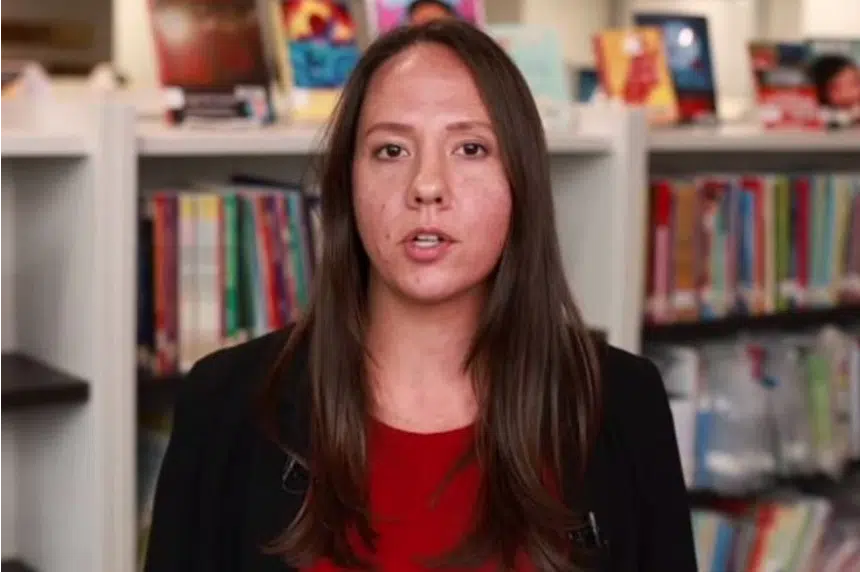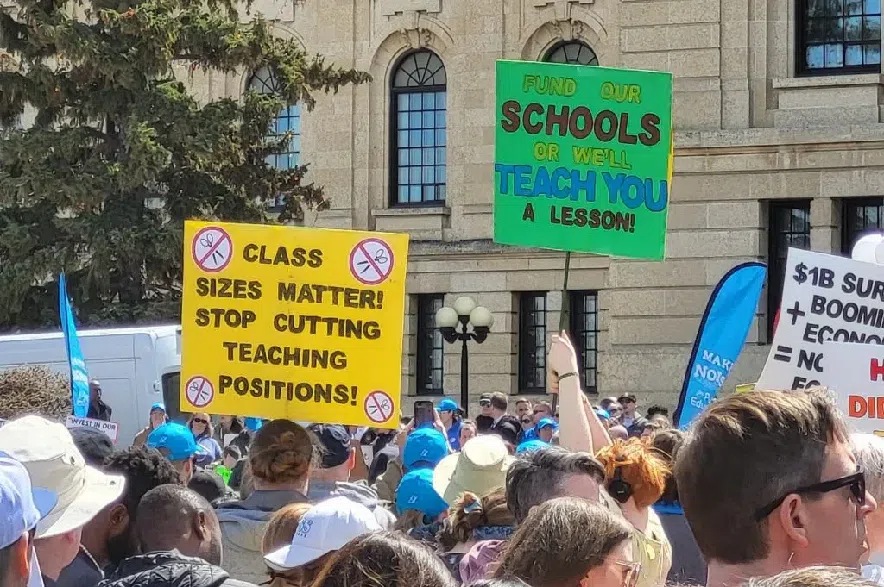Samantha Becotte, president of the Saskatchewan Teachers’ Federation, said she hopes Tuesday’s single-day strike will show the government how serious teachers are about having their needs met.
On Friday’s Evan Bray Show, Becotte said the union still wants class sizes and classroom complexity addressed in the negotiation process.
“Teachers’ working conditions are students’ learning conditions, and we need to have assurances that in (the) long term, the government is making commitments to improve those conditions in classrooms right across the province,” she said.
After talks between the STF and the province stalled, teachers voted overwhelmingly in favour of sanctions back in October.
The STF said Tuesday’s action is necessary because the province wouldn’t budge on the classroom issues.
On Thursday, Education Minister Jeremy Cockrill issued a statement saying the government was disappointed in the STF’s decision to strike, and said the province is still at the bargaining table, ready to talk.
“They might be at the bargaining table, but they’re not engaging in negotiations, which is has been the frustrating piece throughout the entire process,” Becotte told Bray.

STF president Samantha Becotte speaks to media in an online news conference on Sept. 20, 2022. (650 CKOM file photo)
“The best contracts are negotiated at the table, but you need two parties. You need two groups at the table engaging in those conversations, and throughout the entire process right since May, we’ve been hearing ‘no’ on many of the items from government. They haven’t moved significantly off of their opening position, and that’s not negotiation.”
Becotte noted that the union has gone to conciliation, hoping that it would move the process forward. She said the conciliator’s report could be used as a starting point for further talks.
Cockrill said the issues of class sizes and complexity should be managed by local school divisions rather than being built into teachers’ contracts. The province announced a pilot project aiming to reduce in-class disruptions this week, but Becotte said the small-scale pilot won’t fix the problems.
“What we’re looking for is a long-term commitment beyond pilot projects,” Becotte said.
“We said they could commit to the expansion of those pilot projects and make assurances that we will continue to see improvements on the eight schools or the 30-or-so teachers that might benefit from the pilot projects that have been announced this week.”
Becotte also said that a funding commitment would provide assurances to teachers, especially since they don’t know whether or not the pilot projects will ultimately be successful.
The STF president admitted that the planned strike puts both parents and students in a tough position.
“It is unfortunate that we’ve gotten to this point. I understand that it’s likely frustrating for parents, but I also hear frustration from parents around the lack of support that their kids are receiving in schools,” she said.
“I hear frustration from parents who have to pay for those private supports – whether it’s a couple thousand dollars for speech language pathologist or it is private counselling or a private psychologist.
“It’s good when parents can have the funds to pay for those, but there are too many parents who don’t, and we need to be supporting schools and we need to be supporting students and providing them with the resources that they need to be able to thrive.”











